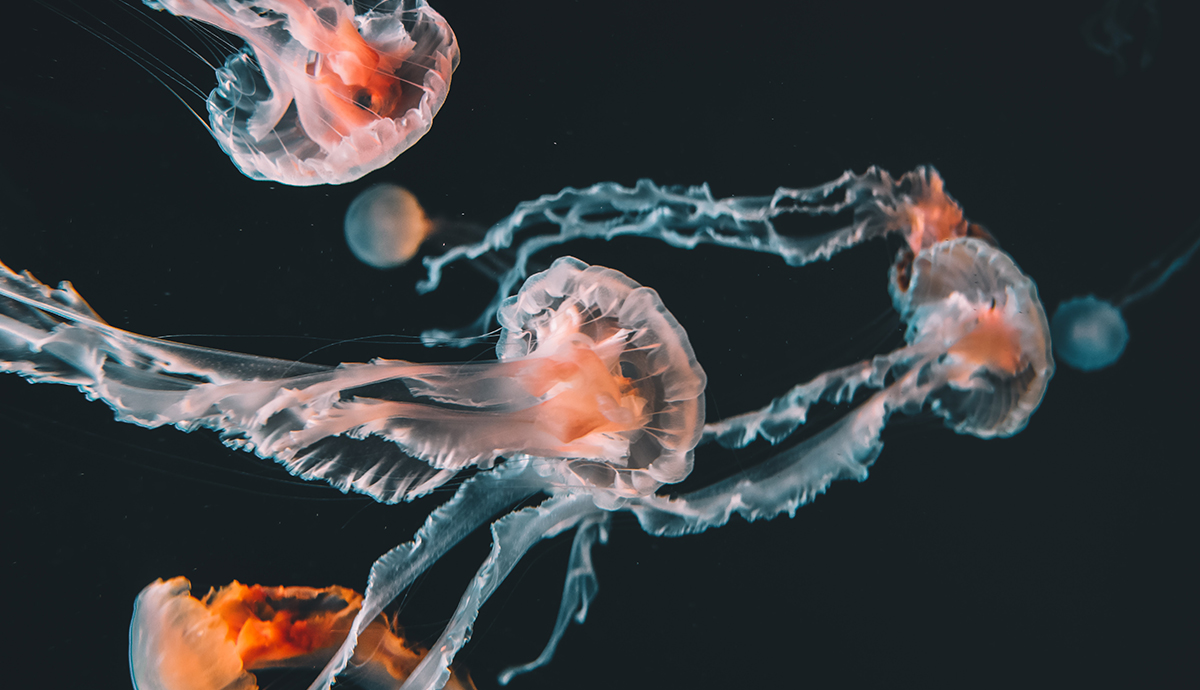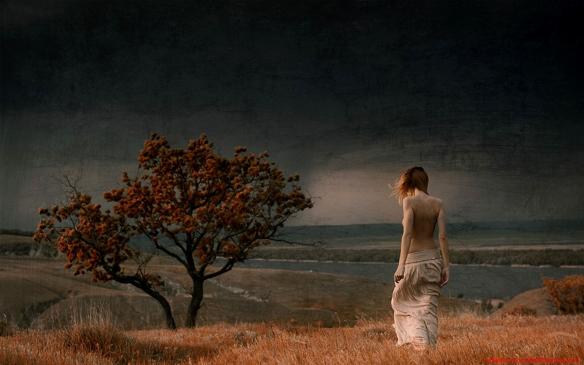The Beauty of Sadness: An Essential Human Emotion Exiled in a War Society
We have always been something of a war society in the U.S., but since 2003 something far more sinister than anything I’ve witnessed has sprouted from the seeds of violence from what critics have called a coup d'état of our United States Constitution after September 11th.
I don’t understand what it is we’ve become in the last twelve years. It may be a cliché to say that I feel estranged, a little like that lonesome wolf, Harry Haller, in Hesse’s novel Steppenwolf. The war mentality has been filtering through our politics, universities, entertainment, and mainstream media with what appears to be a deliberate objective to reduce American culture to the lowest beastly denominator.
In the last decade, our police officers have been militarized. CIA films and televised series continue to propagate the view that torture works if you want information despite the overwhelming evidence that it doesn’t work, that torturing another human being is illegal for morally reprehensible reasons: it’s cruel and barbaric punishment.
It’s no coincidence that Americans are being persuaded, through the media, to accept military interventions in new and subliminal ways, which make the conventional methods of war propaganda look archaic by comparison. It’s no coincidence that there are numerous CIA-NSA-Homeland Security TV series that make spying on Americans seem normal and acceptable when in fact government surveillance of our homes, phone calls, texts, and e-mails is blatantly unconstitutional, illegal, and an intrusive abuse of power. It’s no coincidence that the Pentagon and their military contractors have an infinite amount of money to fund these so-called “fear the terrorists” shows. The corporate networks are also paid handsomely to promote war advocates (alias arms dealers) without debate. At the same time, conservatives can’t wait to slash food stamps for the poor.
The trick is, how do you justify perpetual and unpopular invasions of countries at the cost of trillions of tax dollars during one of the worst economic depressions in decades?
How do you make bombs loveable? How do you convince Americans that all sorts of advanced, super high tech weapons that obliterate large chunks of the earth, human beings and entire civilizations—are a Must Have American Dream? You do it by turning Americans into ruthless automatons. You do it by crushing all human emotions of sadness.
I’m reminded of Orwell’s infamous image in 1984: "If you want a vision of the future, imagine a boot stamping on a human face – forever."
To an artist sadness is poetic. It leads to the truth, as Sophocles notably put it. At times, sadness leaves us vulnerable, fragile and open to “the better angels of our nature,” in Lincoln’s words. One can suddenly be stunned by a transcendental moment of sadness. I’m thinking of a scene in the film American Beauty when Ricky Fitts showed his girlfriend his video of a paper bag dancing in the wind by itself:
"It was one of those days when it's a minute away from snowing and there's this electricity in the air, you can almost hear it. Right? And this bag was just dancing with me. Like a little kid begging me to play with it. For fifteen minutes. That's the day I realized that there was this entire life behind things, and this incredibly benevolent force that wanted me to know there was no reason to be afraid, ever. Video's a poor excuse, I know. But it helps me remember... I need to remember... Sometimes there's so much beauty in the world, I feel like I can't take it, and my heart is just going to cave in."
There is no possible way that Ricky would experience that moment of the sublime, what mystics have called “an unconditional love of all things,” if he were an insensitive brute.
For poets sadness creates a certain mood for writing. The other day, for instance, I watched the light falling through the clouds. It was cold. The boats were docked like forgotten memories, and fishermen were winding up their nets. You could see the fog shining across the ocean. It was one of those dolorous moments that sparked the first few lines of a poem.
All good literature is imbued with sadness; sadness, grief, and sorrow are qualities that define our humanness, our humanity, if we still have it. It has nothing to do with nationalism or patriotism.
But like that image of the boot crushing a face, there is a deliberate campaign to oppress sadness, to drown it out with antidepressants in order to become oblivious and apathetic. Maybe it’s because sadness allows us to embrace one another, including nature and the variety of animals that are going extinct from human-polluted global warming. How do you tell your child that there are no dolphins, or that they can see what a bear looked like at the Museum of Extinct Species? It’s convenient to push it away, it’s hard to face these facts because they make us terribly sad, but that’s a good thing: meaningful sadness gives us the incentive to challenge the status quo, to demand clean energy.
Sadness is the “voice of lament / against the cruel vicissitudes,” to borrow a line from Louise Glück. It’s the poet’s dark night of the soul. It’s a bridge to empathy. It’s a catalyst for momentous change in the tradition of Gandhi and Martin Luther King Jr.
We have exiled sadness the way we have exiled nature in exchange for a war society of greed and violence. Sadness is a human virtue that allows us to feel compassion for all living beings. It’s a quiet path through an open field of moonlight.
Disclaimer: It’s important to note that I am not referring to “clinical depression” or individuals suffering from suicidal thoughts who need professional help. I’m talking about natural feelings of sadness, an emotion that allows us to sympathize with others.
Jacqueline Marcus’ first collection of poems, Close to the Shore, was published by Michigan State University Press. Her poems have appeared in the Kenyon Review,
Ohio Review, Antioch Review, The Journal, Hotel Amerika, Verse Daily, The North American Review, New Delta Review, Tampa Review, North Dakota Quarterly and more. Her second collection of poems is titled Summer Rains. She is a contributing political writer for BuzzFlash.com at Truthout.org. She taught philosophy at Cuesta College, San Luis Obispo, California, and is the editor of For Poetry and Environmental Press. Jacqueline’s poem, “Neruda” was featured in the North American Review issue 295.2. And her commentary on “Neruda” was recently posted at NAR’s blog: https://northamericanreview.wordpress.com/2014/06/21/neruda-by-jacqueline-marcus-from-issue-295-2/
Top Image provided by Jacqueline Marcus through: http://wallpoper.com/wallpaper/paintings-landscapes-275707
Photograph "SUFI GIRL" by: Anthony Tremmaglia is an Ottawa-based illustrator, artist, and educator. His clients include WIRED, Scientific American, Smart Money, HOW, and San Francisco Weekly. Anthony's latest publication with the North American Review is issue 299.1, Winter 2014.
Recommended
Nor’easter
Post-Op Appointment With My Father
Cedar Valley Youth Poet Laureate | Fall 2024 Workshop






